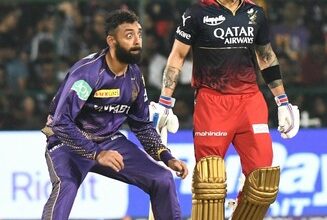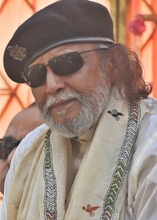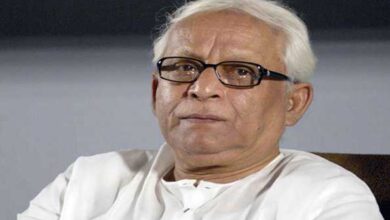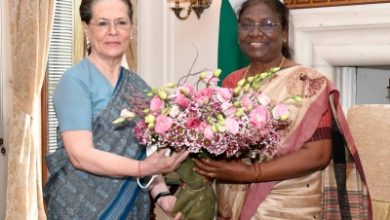SC stays West Bengal order banning the film ‘The Kerala Story’ (Lead)
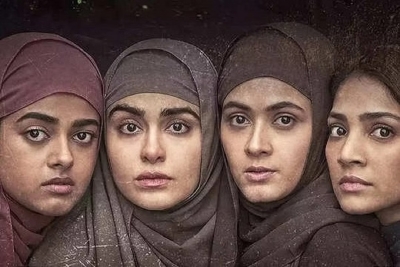
New Delhi, May 18: The Supreme Court on Thursday stayed the West Bengal government’s May 8 order banning the screening of film “The Kerala Story”.
A bench, headed by Chief Justice of India D.Y. Chandrachud and comprising Justices P.S. Narasimha and J.B. Pardiwala said that prima facie, it is of the view that the prohibition by West Bengal is not tenable on the basis of material before the court and “May 8 order shall remain stayed”.
It said that it will watch the film and it would proceed to define the doctrine of what should be allowed and what shouldn’t be in a movie and suggested that the court could lay down elaborate guidelines in the issue when it takes up the matter in July.
During the hearing, the bench, in connection with the ban on the movie in West Bengal, said: “The exercise of power has to be proportional. Suppose, if you have a problem in one district, you do not have to ban the film in the entire state… if you don’t watch the film don’t watch, they say bombed at the box office…”.
Senior advocate A.M. Singhvi, representing West Bengal, said the problem is with the public exhibition of the film, public display of emotion, and asked the bench to see the teaser of the movie, which has been removed.
The Chief Justice replied: “Dr. Singhvi, that is exactly the problem. You cannot make the fundamental right to free speech to be dependent on the public display of emotions. Public display of emotions has to be controlled by the authorities… you do not like these scenes, then do not watch the film”.
Singhvi said the state has objection with the public exhibition of the film and the breach of peace it creates in the public space, “we have no objection on watching the film in other formats, including mobile, OTT etc.”
Senior advocate Harish Salve, representing the filmmakers, vehemently argued that state governments cannot sit in appeal over the grant of certification to the movie. He said West Bengal claims that 12-13 people watched the movie and they said it will cause riots and they are using it to justify the ban on the movie. He said some isolated incident happened in Maharashtra, which West Bengal is citing to ban the movie, but the Maharashtra government did not ban the movie and the ban is in the teeth of film’s certification.
The Chief Justice said: “You get 13 people to ban the film, unless you are showing cartoons or sports to the people”.
The top court noted that the film has been released everywhere in the country. Singhvi said West Bengal’s demographic is very different and it has to be considered. The Chief Justice said, “You can’t expect the demographic to be the same everywhere…”
The top court stressed that Section 6 (of the West Bengal Cinema Regulation Act) cannot be utilised to put a premium on public intolerance, otherwise films would find themselves in a spot.
Senior advocate Kapil Sibal, representing a party in the matter, submitted that whether the film should be banned or not banned, “only when the lordships will see it, what part of it should be taken out and what should not be taken out, these are very serious things this impacts millions of people…..this art form is subject to 19(2)”.
The bench said, “we intend to stay the order of West Bengal of May 8, 2008… we will pass an order directing Tamil Nadu not to directly or indirectly impose (ban).”
The Chief Justice told the state’s Additional Advocate General Amit Tiwari, that it will record his statement that there is no ban in Tamil Nadu.
The bench also directed Tamil Nadu to provide adequate security to every cinema hall for safe screening of “The Kerala Story” and ensure safety of moviegoers, and also the state will not formally or informally move to thwart screening of the film.
The top court directed the film makers to ensure that the movie carries a disclaimer clearly stating that it is a fictionalised version of events and the filmmaker has no authentic data to back the figure of 32,000 conversions of Hindu and Christians to Islam.
Senior advocate Huzefa Ahmadi submitted that the screening of the film would create a deep divide in the society. Solicitor General Tushar Mehta said the film is being screened all over the country and the apprehensions against it are fictional and stressed that people who do not want to watch the film, can choose not to watch the film.
The top court was hearing a plea by filmmakers of “The Kerala Story” against a ban imposed by the West Bengal government on the screening of the film and the shadow ban imposed by the Tamil Nadu government.
The West Bengal government, in a counter affidavit, told the Supreme Court that the film is allowed to be exhibited, the same will cause breach of peace which will not be in the interest of justice.
“The movie is based on manipulated facts and contains hate speech in multiple scenes that may hurt communal sentiments and cause disharmony between the communities which will eventually lead to a law-and-order situation, as has been gauged from various intelligence inputs received by the state government over a period of time”, said the affidavit.
It said to maintain public order and for the benefit of the general public, and by exercising its power section 6 (1) of the West Bengal Cinemas (Regulation) Act, it has imposed a prohibition on exhibition of the movie.
The Tamil Nadu Police have told the Supreme Court that filmmakers of the film “The Kerala Story”, have made deliberate misleading statements that the state government has brought about a “shadow or implicit ban” on the screening of the film and emphasised that the film was released in 19 multiplexes, even after protests and objections by Muslim organisations, and was removed due to poor response.


